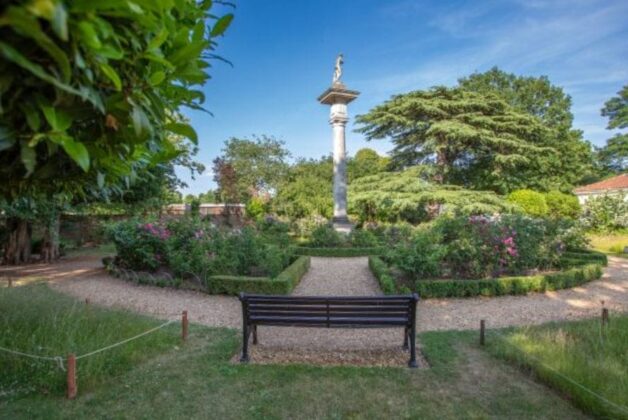By Adrian Murphy
Colin Mulberg Consulting has been putting visitors first for more than 20 years and on Wednesday, 29 April will curate six talks from people who are setting new standards
When it comes to understanding your visitors Colin Mulberg says there is a tendency to do the research, look at the report, pull out one or two things and then let it sit on a shelf. So at the Museums + Heritage Show he wanted to involve practitioners in his talks that could look at how you actually use this research and know-how in practice. The talks will focus on how this research can lead to change, how museum professionals can actually get to know their visitors and how having an insight into different audiences can transform a space.
“I have selected people who have found a surprise or an insight, or something that they wouldn’t have expected necessarily to do with the understanding of audiences,” says Colin Mulberg.
“And then we look at how that has influenced what these professionals have actually implemented and how this has made a practical difference.” Mulberg says there are two elements to this: one is how useful and important it is to really get into the heads of your visitors and the second is that the museums and heritage sector is one of the few sectors that still has not got it imbedded into its psyche that it needs to know its customers.
“Everyone else outside the museum sector, other organisations, whether they be public or commercial are getting better and better about what the customer wants, when they want it and giving it to them,” he says. “But in the museums sector we have been very slow to work on this – that’s because we can be very inward looking. We focus too much on the collection and forget the outward looking bit which is about the people coming in – we’ve got a good way to go.”
The first of these talks will be ‘Beyond the obvious – visitor insight’ where Rosalind Johnson from visitor experience consultants A Different View will focus on the various outcomes that can be achieved through paying attention to visitor insight and experience analysis.
“They are going to talk about how they have taken steps to understand a visitor, to get them into the museum and get some insight into their attitude, their motivations and what they want from a visit,” says Mulberg. “This involves thinking about what things look like through their eyes. And then, the second thing is how they acted on that and how it made a difference on the ground.” The audience at Understanding Your Visitors talks should take away with them just how important and useful it is for people across the organisation to see things from the visitors’ point of view. “They should be able to take away techniques for gaining some of that insight, including simple techniques that they could try out in their own organisation as well as a range of different approaches,” he says.
The second talk will be ‘Transforming thresholds – improving the visitor welcome’ with Rebecca Dalley, RAF Museum, and Ross Parry, School of Museum Studies, University of Leicester and examines how you can change your welcome areas. “When you walk into a museum it often doesn’t sell itself to you – it probably doesn’t suggest this is going to be really exciting,” says Mulberg. “This session looks at transforming those vital first impressions at the start of a visit.”
‘Understanding your visitor through prototype testing’ is the third session with Lauren Souter and Jack Gelsthorpe of the Science Museum. This presentation will delve into methods for evaluation and its impact on the visitor experience based on developing exhibits for a gallery at the Science Museum. “You can use this session to understand how to use testing to remove guesswork when making things better for visitors.”
Following this will be a talk on ‘The three phases of visitor engagement’ with Katie Vosper, BDRC Continental and Claire Clutterbuck of the Royal Academy of Arts who will share their three-phase audience engagement process. This involves understanding visitors in the context of what matters to them, engaging external stakeholders and setting a compelling vision with the aim of translating this insight into action.
The penultimate session tackles the challenge of audiences wanting different things and how you go about accommodating this. Adam Rowlands, North Suffolk Coast Reserves and Catherine Halcrow, Outside Studios provide strategies for dealing with diverse audience needs and how this led them to develop a new approach, resulting in an impressive 80 per cent more members.
In the final talk Kevin Moore of the National Football Museum reveals how insight into visitors drove the development of the new museum. He will also discuss the conflicts that can arise, following the announcement of the project vision, between visitor research and the views of interest groups. In a frank discussion Moore will explain what went right and what he may do differently next time.




